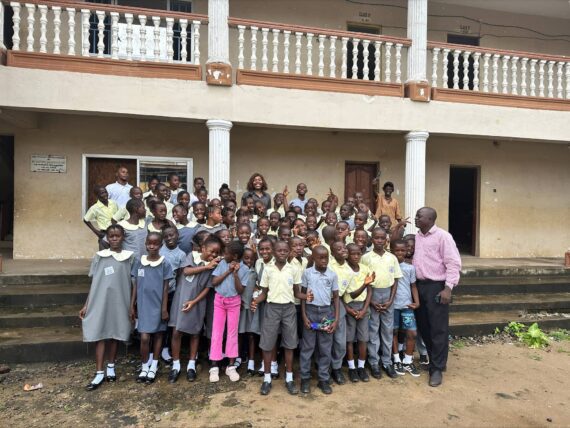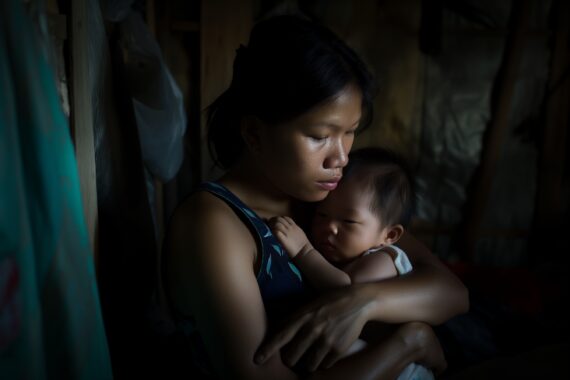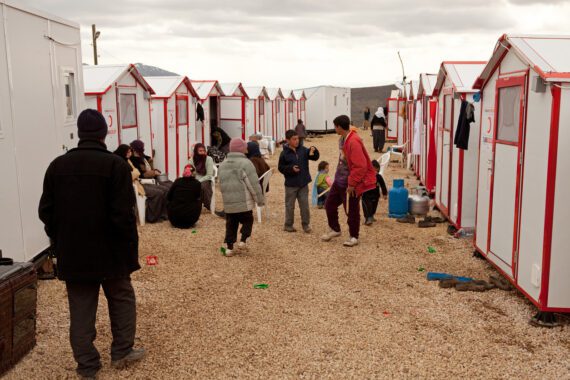Dr. Sia Gevao had an interesting summer before arriving at Bread! As a recipient of this year’s Changemaker Catalyst Award from Tulane University, she spent three weeks in her home country, Sierra Leone, designing and implementing programs on mental health for children and early adolescents. Her background as a medical doctor with a master’s in public health and varied work experience enabled her to conduct an effective needs assessment in the Kroo Bay community, an underserved settlement on the west side of Sierra Leone’s capital, Freetown.
One significant health issue in the community is that many people abuse kush, a synthetic drug made from edible leaves that alters pain perception and causes euphoria. These effects help explain its addictive nature and widespread use. In the past, programs conducted by outside organizations have prioritized those who are already active substance users.
Sia decided to focus on prevention—an urgent matter since children as young as 8 or 9 serve as couriers, bringing supplies to extended family and even parents. Some begin to use kush themselves by their early teens. As couriers, children acquire a lot of knowledge about various types of drugs, where they may be obtained, and the effects their users want and expect.
What the children do not hear about is the negatives, such as lifelong damage to one’s health and ability to look after oneself, as well as the risk of a potentially fatal overdose. The focus on prevention also enabled Sia to design an effective program despite not having access to reliable data about community drug use in specific communities and its effects and implications.
Sia worked with children who were nearly ready to transition to high school, in partnership with the Holy Annunciation Orthodox Christian Primary School of Kroo Bay. Among the topics covered in her presentation were the meaning of terms like mental health and substance abuse, ways in which children can care for their mental health daily, the benefits of not using drugs and how children can avoid it, and where to go for help. During the program, children were also encouraged to express their feelings—for example, by sharing them on sticky notes that the group could discuss and by participating in art projects.
One key insight from the children came from a student’s question about why they themselves were not being engaged and encouraged to become mental health advocates. They could, for example, serve on discussion panels and help promote awareness of the problems caused by drug use in the community. Sia realized that the children want to have their feelings validated and are willing to express them if provided with a safe and supportive space.
Sia said that it is saddening that the adults who should be the students’ allies—parents and extended family—are in some cases steering them in the wrong direction. She was able to identify the potential drivers of drug use in the community, such as unemployment, financial burdens, and societal norms. The children are vulnerable and should be a priority for public health efforts.
“As changemaker alumni,” Sia said, “it is of utmost importance that we prioritize community engagement with an open mind. As we grow and learn, the children we serve should be the pioneers of our drive and should in no way be marginalized from these discussions.”
Bread for the World was fortunate to host Dr. Sia Gevao as a global hunger intern in the Policy and Research Institute for the fall 2023 academic semester.



